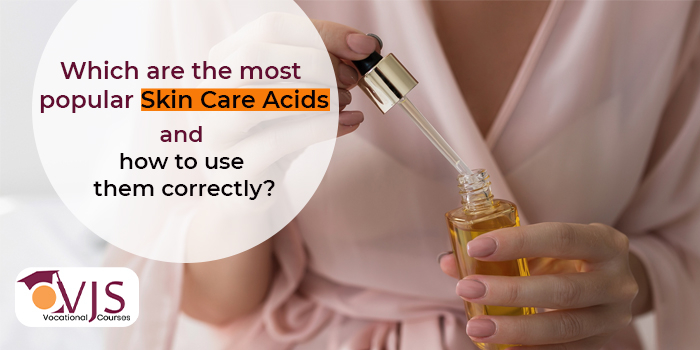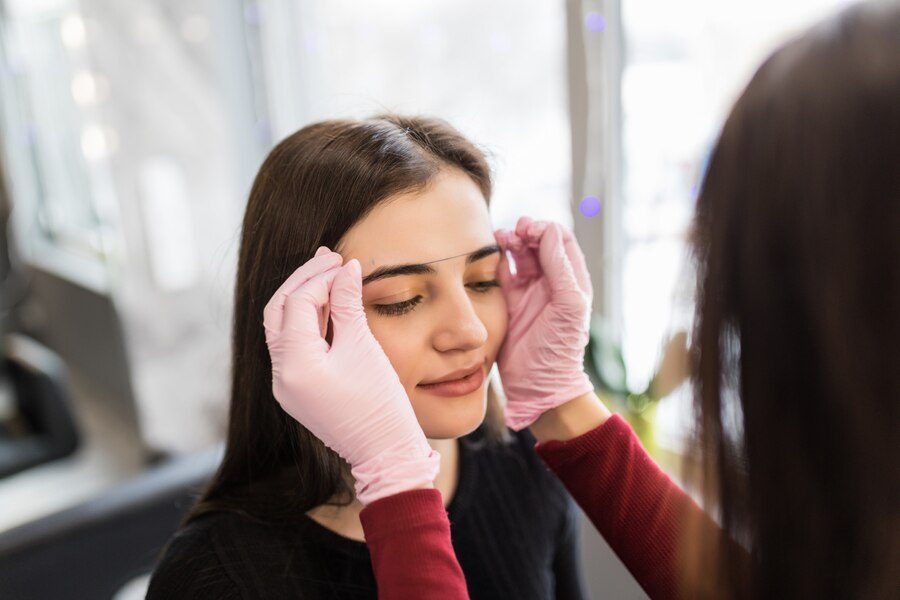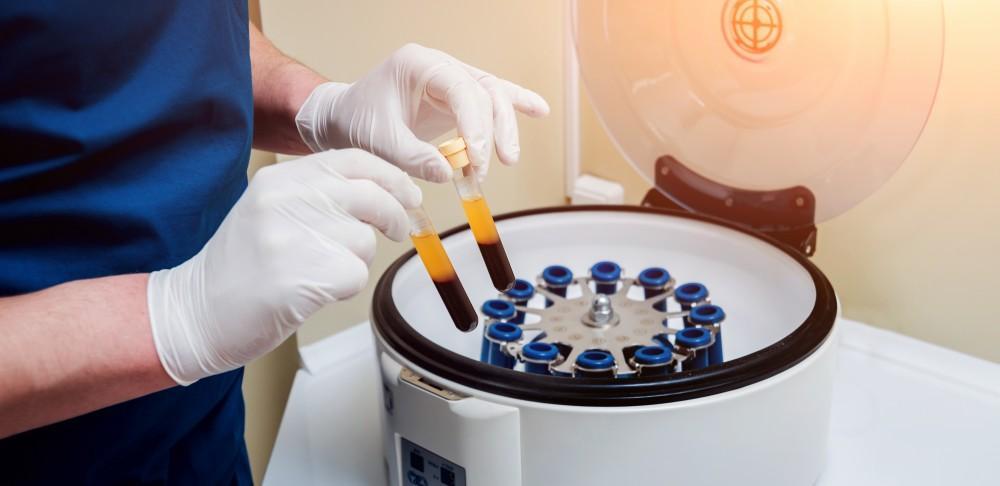Skincare products are in huge demand
Smooth and Radiant skin – What more we could ask for? Right. The world of skincare involves using the right products which eventually helps us to have a glowing complexion. But, the skincare industry is vast which can be slightly confusing what to opt for. We might come across the trendy and new products which are dominating the market. Although, how can we be sure that these are right for us?
Coming across the right kind of skincare product can make a lot of difference. To understand which skincare formulation is right for a person, they need to trust the expertise and knowledge of a professional. Sometimes a certain product is extremely harsh to our skin while few of them will benefit the skin.
The demand for skin care products is rising and this is the reason they need skincare experts is booming. With that said, it is the perfect time to enroll yourself in any cosmetology or skincare course to fulfill the demand for professional skincare expertise.
Choosing the right type of skincare product
Acids are an important part of skincare which makes it even better to use these products. But, most of us are not interested in the chemistry class or do not understand what goes behind it. However, when we want to serve the customers or patients, we need to make sure they understand the skincare formulations properly and safely.
Which are the most commonly used skincare acids?
Glycolic Acid
Glycolic acid is an alpha hydroxy acid (AHA) that is extracted from sugar cane. It is one of the most suggested anti-aging skincare products as it helps in:
-
- Collagen production
-
- Promote cell turnover (takes away dead skin to reveal new skin)
-
- Provides mild exfoliation
This acid is the smallest in terms of size which means its molecules will go beneath the skin. Due to this, it removes the dead particles as the skin breaks down effectively.
Important Note
Glycolic acid increases the risk of sunburn, so make sure that your SPF 30 is used with the product of glycolic acid.
Lactic Acid
Lactic Acid is taken from milk and if someone wants to address the issue of pigments., then this option is best. Moreover, it has collagen-building properties. Through its use, the skin will get brighter. Although, it is gentle on the skin and does not result in any side effects. But, you need to be cautious about certain things like:
-
- No exposure to the sun
-
- After its use waxing is not suggested for at least 24 hours.
Cautious: People with sensitive skin are not suggested to use lactic acid
Hyaluronic Acid
Hyaluronic acid and dry skin complement each other like anything. This acid attracts water to itself which increases the hydration. In addition, it is a sugar that is found in the body on its own which helps in:
-
- Increases collagen production
-
- Maintains Lubrication
It is also used in the injectable filler. However, there are many people out there who do not want to get any filler and this is the reason they are preferred to use the products which have this acid like:
-
- Serums
-
- Masks
-
- Moisturizers
Retinoic Acid
If we want to sum up retinoic acid in one word then it would be – ‘Godmother’ of all the acids. One of the most effective acids out there which helps the skin to look healthy and young. It is like an antioxidant that can address the problem of aging and wrinkles. So, its use can help in:
-
- Increasing the skin strength
-
- Address the problem of wrinkles
-
- Improve fine lines
-
- Provide even tone
Important Note
Pregnant women are suggested to use this acid and if someone has sensitive skin.
Salicylic Acid
Salicylic acid (BHA) is preferably best to address the issue of acne as it is loaded with anti-comedogenic and antibacterial properties. This acid goes deep into the oil glands which helps in:
-
- Reducing inflammation
-
- Excess oil due to acne
Salicylic acid is found in several products, from acne spot treatment to moisturizers. In case someone has an issue with clogged pores or breakouts, then salicylic acid is the preferable choice.
Ferulic Acid
Ferulic acid (AHA) is found in plant cell walls. It contains antioxidant properties which help in:
-
- Reducing the effect of sun damage
-
- Reducing the effect of environmental damage
-
- Best for aging skin
Its effect is even better when used in combination with topical Vitamin C. If possible, you should ask your client or patient to store the ferulic acid skincare products in a cool area.
Tranexamic Acid
Tranexamic Acid is like a best friend for patients who have melasma. Apart from that, it can also be used for addressing the problems like:
-
- Even out pigment
-
- Reduce melanin Synthesis
-
- Makes the skin bright (For best results use it with Vitamin C)
No doubt, it is easily found in the form of serums but there are masks and moisturizers available also.
Important note
If tranexamic acid is used with other products, it will make your skin extremely dry.
Hypochlorous Acid
Hypochlorous Acid provides the skin with a variety of benefits. It is like a fairy acid that can address several skincare issues. It is loaded with high active products which are best for:
-
- Addressing bacterial issues
-
- Vira issues
-
- Fungal program
Apart from that, it is helpful in managing inflammatory skin disorders such as:
-
- Seborrheic dermatitis
-
- Atopic dermatitis
-
- Psoriasis
-
- Eczema, and acne. Cop this ingredient in a toner, face mist, serum, or mask if you have an inflammatory condition or are prone to acne.
Trichloroacetic Acid
Trichloroacetic acid is extracted from vinegar and contains chemical peeling agents. Moreover, it helps the top layer of the skin to get exfoliated and helps in skin growth. Although, it is important to be cautious with the strength, irritation, and too much exfoliation which can impact the results.
Mandelic Acid
Mandelic acid (AHA) is found in bitter almonds. Its use is considered best for:
-
- Antiseptic in nature
-
- Brightening properties
A person with dull complexions and acne-prone skin can use it. Apart from that, if a person has a dark skin tone, then it is the ideal choice for them. In addition, it helps the skin to stay soft and hydrated.
Gluconolactone
Gluconolactone is a non-irritating polyhydroxy acid (or PHA) which functions almost the same as glycolic acid. It is mild and provides several benefits to the skin. In addition, it works in the form of antioxidants and is loaded with anti-aging properties. Gluconolactone is found in:
-
- Peels
-
- Serums
-
- Moisturizers
It is best suited for sensitive skin and if a person has the issue of atopic dermatitis.
Kojic Acid
Kojic acid is extracted from fermented rice which is an ideal choice for skin-lightening. If a person has pigmentation issues, then this acid is the best choice. Apart from that, it is loaded with anti-inflammatory and antioxidants which targets certain skin areas and improves the tone.
Important Note
This acid is known as an irritant which means it can result in contact dermatitis, transient redness, erythema, and stinging.
Final thought
Well! It is clear the skincare world is extremely huge and several acids can help the person to have radiant and glowing skin. If you want to step into the world of the skincare industry then enroll yourself in the best skincare courses in your area and get yourself trained under the supervision of experts.







